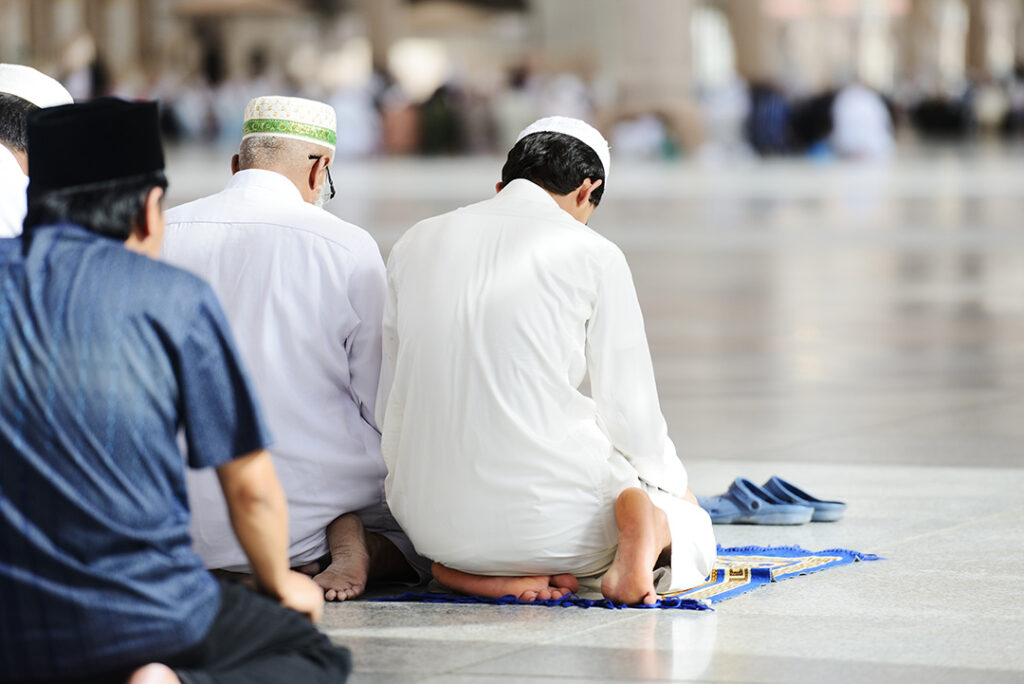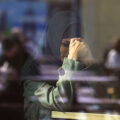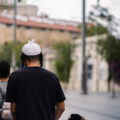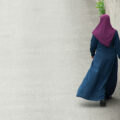Navigating rising antisemitism and Islamophobia during the Israel-Gaza conflict
Navigating rising antisemitism and Islamophobia during the Israel-Gaza conflict
Amidst the Israel-Gaza conflict, Europe confronts rising antisemitism and Islamophobia while voices stress empathy and unity across religious divides.
Following the October 7, 2023 Hamas attacks, a concerning parallel rise in antisemitism and Islamophobia within Europe has emerged, highlighting the complex repercussions of the Israel-Gaza conflict. The response to this challenge is increasingly characterised by a synthesis of Jewish and Muslim perspectives, as illustrated recently by Jemima Goldsmith,[1] who has Jewish and Muslim family members, as well as the interfaith collaboration of Imam Monawar Hussain and Rabbi Jonathan Wittenberg.[2] These authors, straddling Jewish as well as Muslim perspectives, are trying to contribute towards greater inclusivity and empathy. Their voices not only transcend religious and cultural divides, but also call for healing, cooperation, and progress in communities increasingly impacted by misunderstanding and conflict.
The rise of antisemitism and Islamophobia
The European Academy on Religion and Society (EARS) dashboard for analysing media trends provides insight into how the Israel-Gaza conflict has influenced the rise of antisemitism and Islamophobia in Europe. The analysis noted that post-October 2023, nearly 10% of European media coverage focused on antisemitism, with one-third of this coverage focusing on Israel as well.[3]
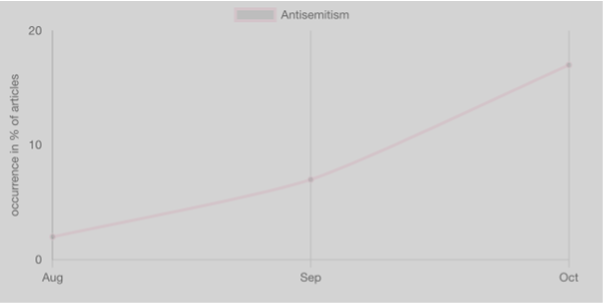
Key developments highlighted in the coverage include the European Parliament’s increased focus on the conflict, with prominent figures such as Ursula von der Leyen supporting Israel’s right to defend itself and noting a troubling increase in antisemitism. Additionally, there were reports of heightened security measures being implemented to safeguard Jewish communities in countries like Germany and France.[4] These came as a direct response to escalating fears of antisemitic attacks in these countries in light of recent developments in the Israel-Gaza conflict.
Simultaneously, the EARS dashboard highlights the surge in Islamophobia during this period.[5]
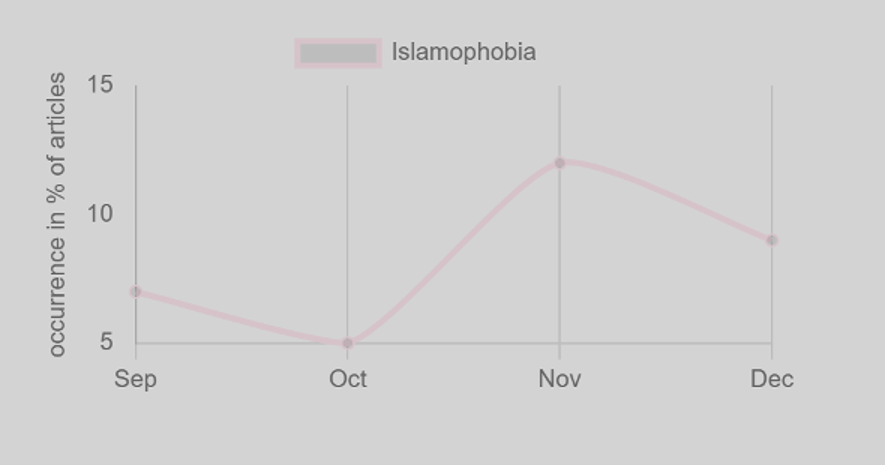
Examples included the rise in anti-Muslim hate crimes reported by UK police since October 2023, the vandalism of mosques in France, and the pervasive fear among Muslims in the Netherlands. This increase in Islamophobia was often correlated with the misguided association of Muslims with Hamas, leading to their discrimination and stigmatisation. The European Commission eventually acknowledged this surge of anti-Muslim hatred.[6] In response to the parallel rise in Islamophobia and antisemitism, the European Commission announced a €30 million fund to strengthen security at mosques and synagogues across Europe.[7]
Both dashboard analyses emphasise the reactionary nature of social attitudes toward minority groups in the context of international conflicts. The rise in antisemitic and Islamophobic incidents, as portrayed by European media, demonstrates how external conflicts can exacerbate existing prejudices, resulting in increased tensions and violence against these communities.
Perspectives straddling two worlds
In this context, the unique perspectives of Goldsmith, Hussain, and Wittenberg are crucial. Goldsmith, who has direct encounters with antisemitism within Muslim communities, explains her personal experience. “I have had first-hand experience of this, as my Jewishness was used as a baton to beat my politician ex-husband Imran Khan, in Pakistan, where Zionist conspiracy theories about me were fabricated,” she writes.[8] In her commentary, Jemima Goldsmith articulates her unique position of having both Muslim and Jewish family members. She stresses that antisemitism and Muslim hatred are both on the rise, affecting many of her loved ones. Goldsmith also emphasises the importance of understanding that you can oppose both rising antisemitism and anti-Muslim hatred.
“This selective outrage and selective failure to be outraged is evident to me on both sides. It is a measure of the depth of their ideological intransigence, tribal myopia, and fear, inflamed by social media algorithms and reckless discourse, that so many intelligent and typically empathic people have been incapable of grasping the simple truth: that you can oppose both rising antisemitism and anti-Muslim hatred,” Goldsmith further explains.[9]
Hussain and Wittenberg’s joint perspective showcases the power of interfaith unity and understanding, demonstrating the importance of mutual respect and empathy across religious divides. In a joint article, Imam Monawar Hussain, Muslim tutor at Eton College and Rabbi Jonathan Wittenberg of New North London Synagogue, state: “We are determined to do our utmost not to bring the conflict in the Middle East into this country. Rather, we are united in our commitment to upholding the values of respect, inclusion, and the honouring and celebration of diversity that form the basis of our shared society.” They further express, “We see in this moment a key time to recognise each other’s anguish, express our solidarity in the face of suffering, and work alongside one another for a more compassionate world.”[10]
Translating rhetoric in a divided world
Efforts against the challenges of antisemitism and Islamophobia demand shared action from individuals, communities, and governments worldwide. The key lies in fostering understanding and tolerance, as these are crucial in combating forms of deeply rooted hatred. The unique perspectives across the religious divide, highlighted above, attempt to do that. Their aim is not just to denounce hatred, but to transform rhetoric into concrete progress.
Sources
[1] Jemima Goldsmith: I have Muslim and Jewish family – I want to talk about antisemitism and Islamophobia
[2] As an imam and a rabbi, we see the pain caused by war in the Middle East. We don’t want that conflict in the UK | Monawar Hussain and Jonathan Wittenberg | The Guardian
[3] Insights from the dashboard: Tracking the shift in Europe’s discourse on antisemitism post-October 2023
[4] Insights from the dashboard: Tracking the shift in Europe’s discourse on antisemitism post-October 2023
[5] Tides of hate: Rising Islamophobia amidst the Israel-Gaza war
[6] Tides of hate: Rising Islamophobia amidst the Israel-Gaza war
[7] Tides of hate: Rising Islamophobia amidst the Israel-Gaza war
[8] Jemima Goldsmith: I have Muslim and Jewish family – I want to talk about antisemitism and Islamophobia
[9] Jemima Goldsmith: I have Muslim and Jewish family – I want to talk about antisemitism and Islamophobia
[10] As an imam and a rabbi, we see the pain caused by war in the Middle East. We don’t want that conflict in the UK | Monawar Hussain and Jonathan Wittenberg | The Guardian
